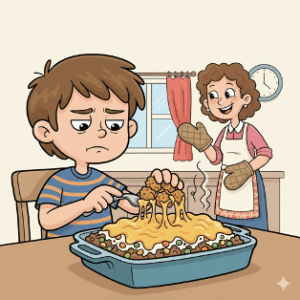3 Keys To Being Consistent

Consistency is the heart and soul of effective classroom management.
Without it, nothing works as it should.
And everything gets worse over time.
Behavior
Respect
Work habits
They continue to deteriorate until and unless you start following through. But how? That’s the big question. If you’re like most teachers, you struggle with consistency.
Sure, you may be determined. You may want, desperately, to be consistent.
But in the moment, when it’s time to enforce a consequence, you falter. Maybe not every time, or even most times. But letting it go even once in a while can have a profound effect.
To be 100% consistent, it must be easy for you to follow through and hard not to. What follows are three keys to doing just that.
1. Leave no doubt.
You and your students need to know precisely where your boundary lines are. They need to be modeled and defined to the degree that there is never, ever a doubt when they’ve been crossed.
In this way, breaking rules is a choice your students know they’re making ahead of time and can feel in their gut when they do—like the drop of a roller coaster.
Not only do sharply defined boundaries cut way down on misbehavior, but knowing exactly when the wall has been breached makes it so much easier to follow through.
2. Promise.
After ensuring your students know the rules backwards and forwards, make a promise to them that you will follow your classroom management plan as written and enforce a consequence every single time.
The soft pressure on your integrity, as well as the threat of your students losing all trust in you, is enough motivation to keep you from weakening and giving in. It provides the strength you need to get over your fear and awkwardness.
It gives you the push to do what you have to do in the moment, when it matters most.
3. Decide.
Experts say that it takes 66 days to form a new habit. Make no mistake, consistency is a habit. Teachers who are consistent don’t even think about it. For them, following through is no more challenging than brushing their teeth.
So how do you get there?
You make a conscious decision. Every morning before your students arrive decide that you will follow through no matter what—even if a herd of wildebeests were to come crashing through your classroom.
I know it sounds simple, but this one active choice is extremely powerful.
Just sit and close your eyes. Breathe and calm yourself for 30 seconds or so, and then decide that you’re going to abide by your plan come hell or high water. And remarkably, you will.
Do it every day and being consistent will become not just something you do . . . but who you are.
Bold & Trusted
I hear the argument often: “What if I don’t see the misbehavior?”
It’s your job to see it.
You must put yourself in position, both physically and with the detailed way you teach your classroom management plan, to be able to recognize rule-breaking the second it happens.
Vigilant supervision is a must.
In the meantime, know that the three keys above have been proven to transform even the most permissive teachers into bold and trusted leaders their students respect and want to behave for.
But it has to be important to you. You have to believe in the goodness of accountability. You must conclude that you’re sick and tired of all the stress and silliness and that you’re ready for the classroom you really want.
And now is the time to take it.



/cdn.vox-cdn.com/uploads/chorus_image/image/70276002/GettyImages_493529574.0.jpg)
:no_upscale()/cdn.vox-cdn.com/uploads/chorus_asset/file/23078935/Kelly_Gleischman_Headshot.jpg)

